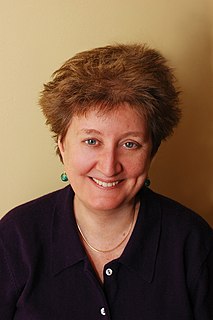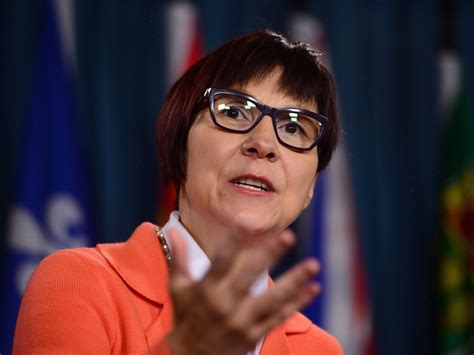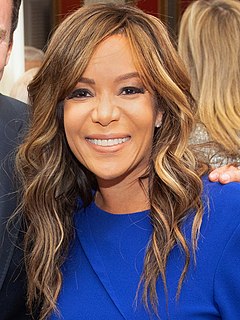A Quote by Paula White
What matters to the evangelical community is Supreme Court justices, economy, religious liberty, Israel, lower courts, human trafficking and abortion.
Related Quotes
I think that's why Donald Trump continues to enjoy evangelical support. They're not endorsing necessarily his lifestyle. What they're saying is this is a binary choice between one candidate, Donald Trump - who is pro-life, pro-religious liberty, pro-conservative justices of the Supreme Court - and another candidate, Hillary Clinton, who has an opposite view on all of those issues.
We often imagine that the court serves as a sort of neutral umpire controlling the warring political branches. But this is mostly myth. The justices of the Supreme Court are themselves actors in the struggle for power, and when they intervene, they think carefully about how their decisions will affect the courts own legitimacy and authority.
Activist Supreme Courts are not new. The Dred Scott decision in 1856, imposing slavery in free territories; the Plessy decision in 1896, imposing segregation on a private railroad company; the Korematsu decision in 1944, upholding Franklin Roosevelt’s internment of American citizens, mostly Japanese Americans; and the Roe decision in 1973, imposing abortion on the entire nation; are examples of the consequences of activist Courts and justices.
Today, no less than five Supreme Court justices are on record, either through their opinions or speeches (or both), that they will consult foreign law and foreign-court rulings for guidance in certain circumstances. Of course, policymakers are free to consult whatever they want, but not justices. They're limited to the Constitution and the law.
On areas like abortion where there is major disagreement among the mainstream religious groups in the Judeo-Christian tradition, I believe that requires a lot more caution. The Jewish position on abortion is very different from the Roman Catholic position. That is reason to be cautious about enacting laws rather than saying to the religious group: instruct your followers on these matters as matters of personal religious belief.
Gorsuch, who is a U.S. Supreme Court nominee in the United States, said the real test of law is when a government can lose in its own courts and still respect the order. And I think Canadian need to ask is why would Canada, if it's doing everything right, why wouldn't you want to be watched? If they are contesting the fact that their own courts don't have jurisdiction over the government's human rights violations, then our next step is to go to federal court and find the federal government that can come to court and we will do that.


































